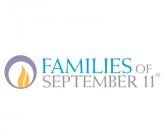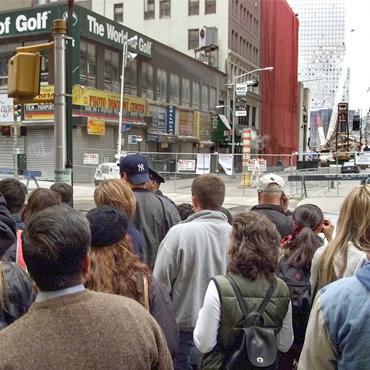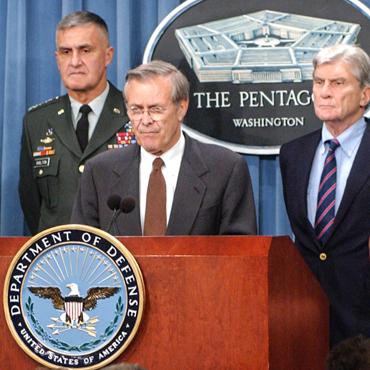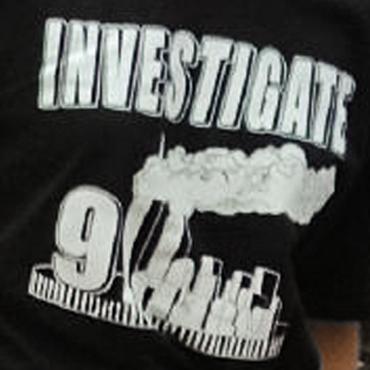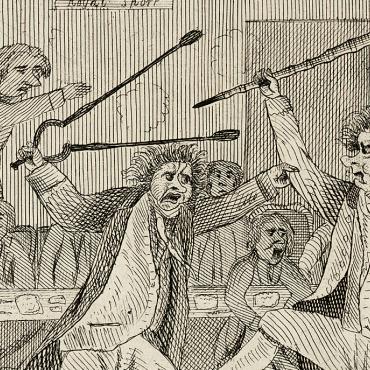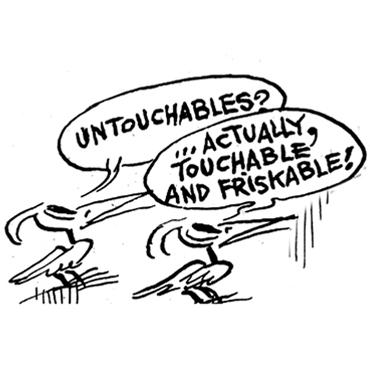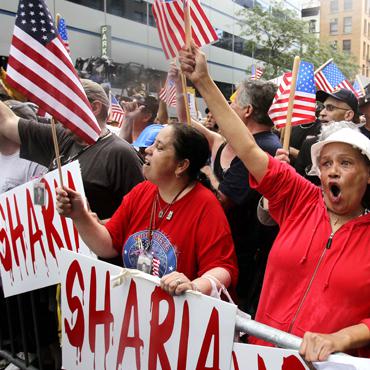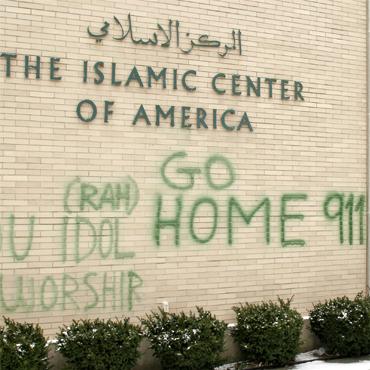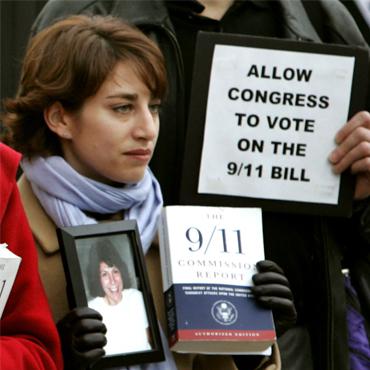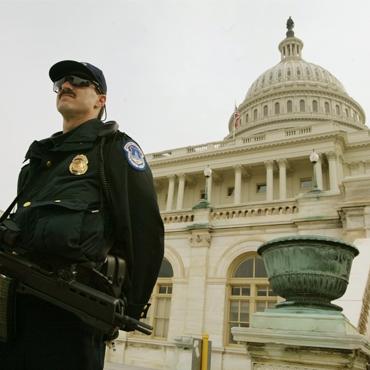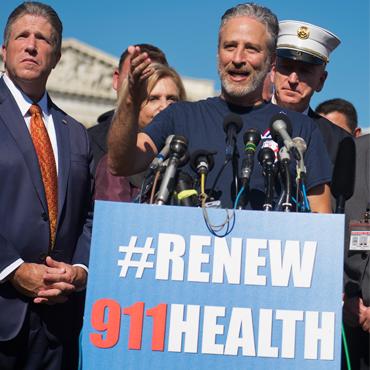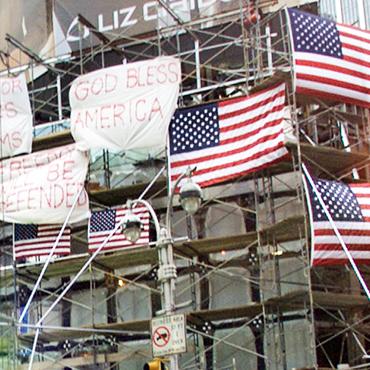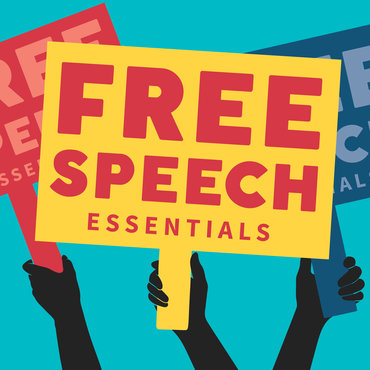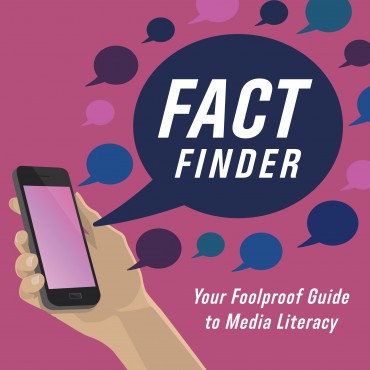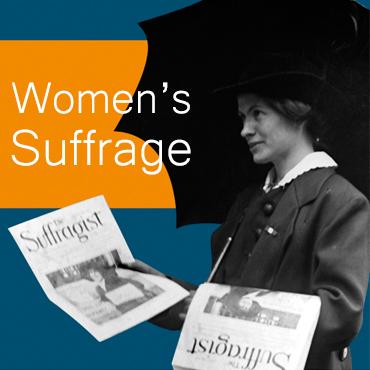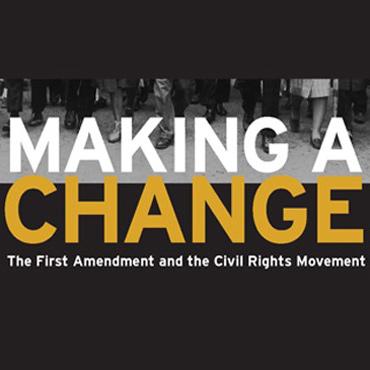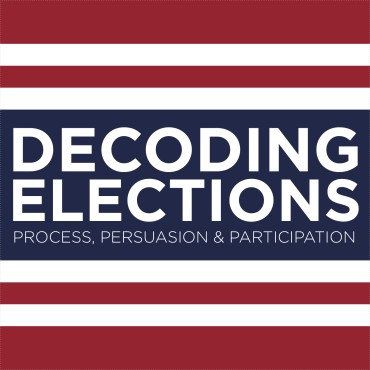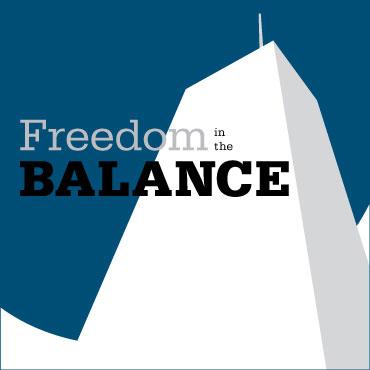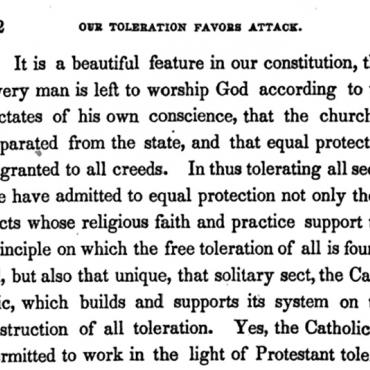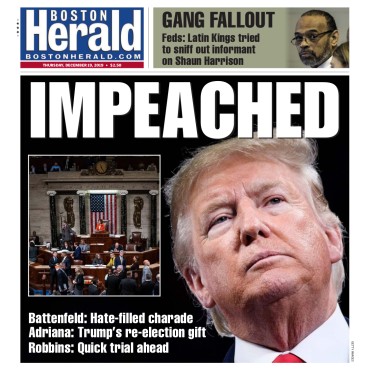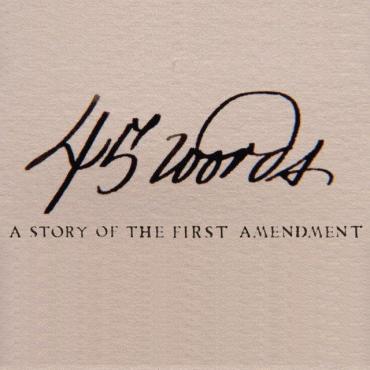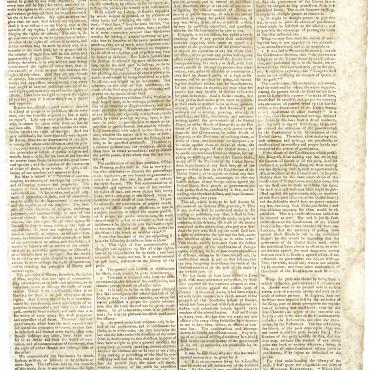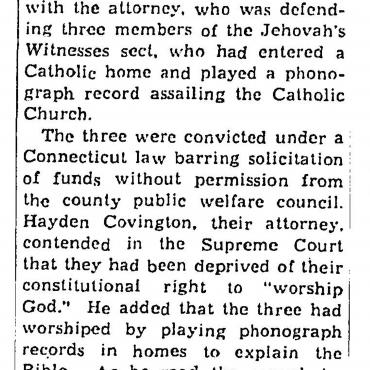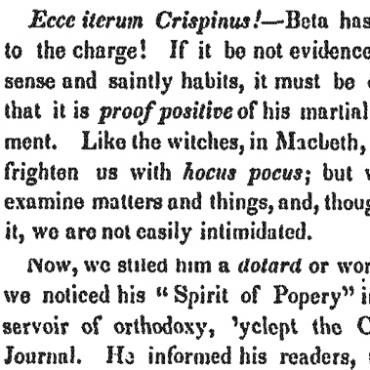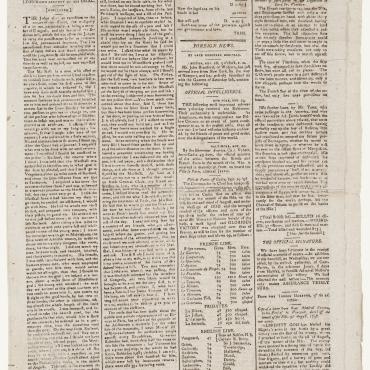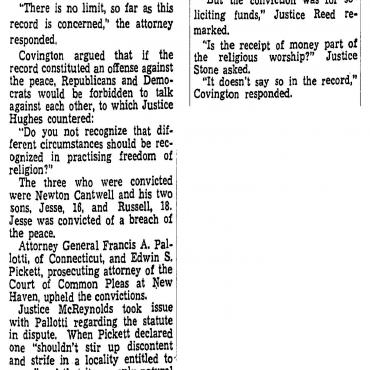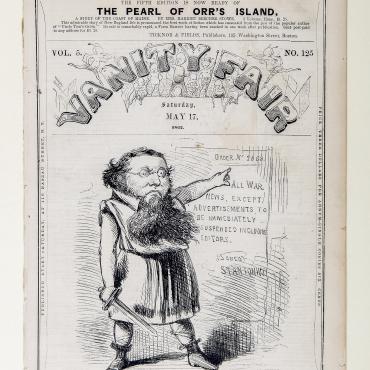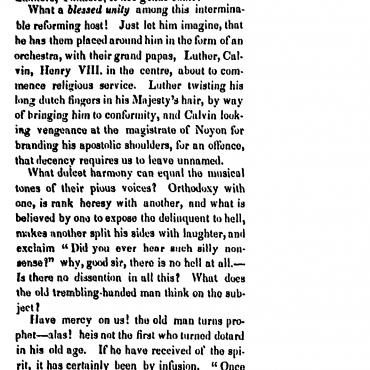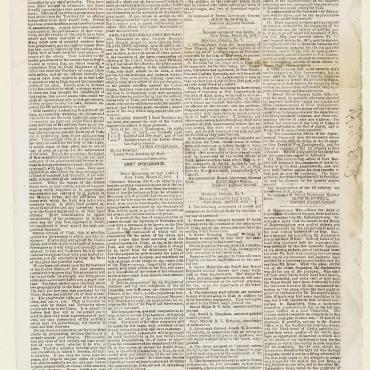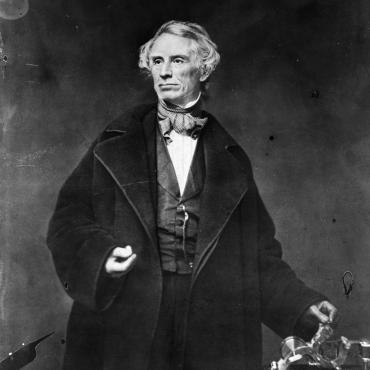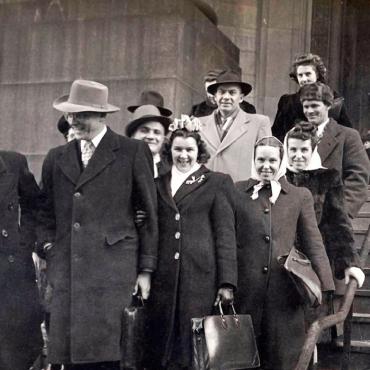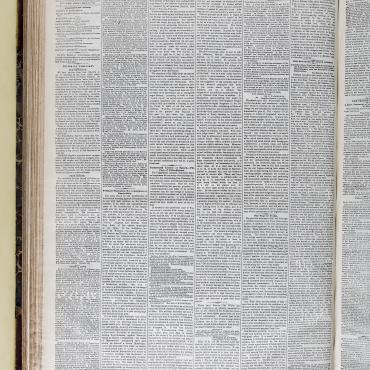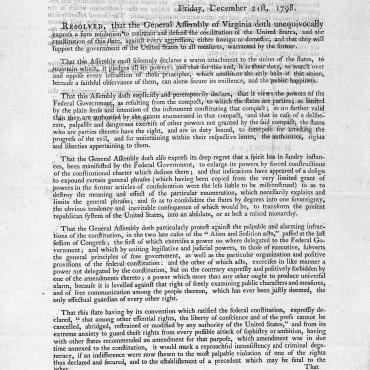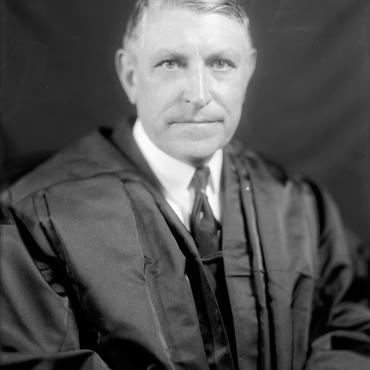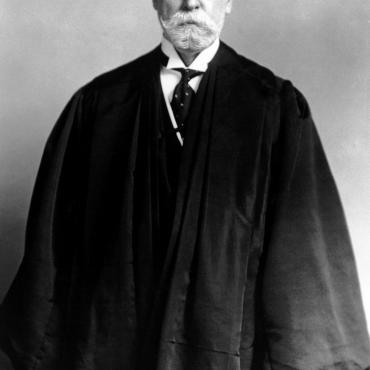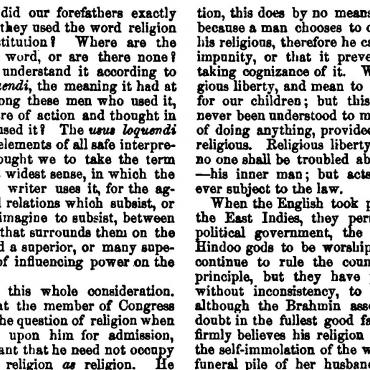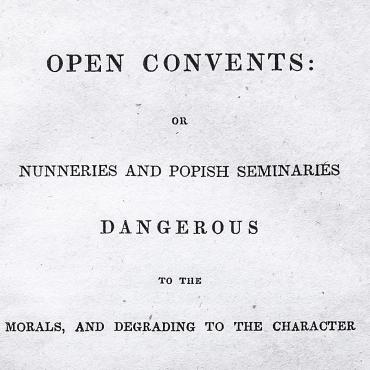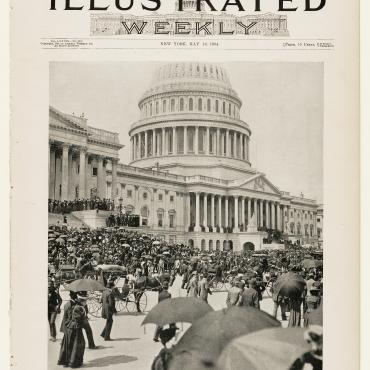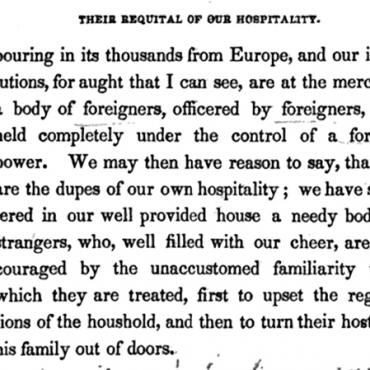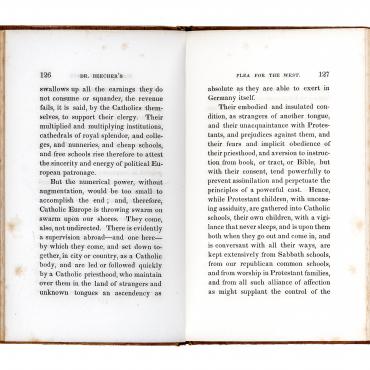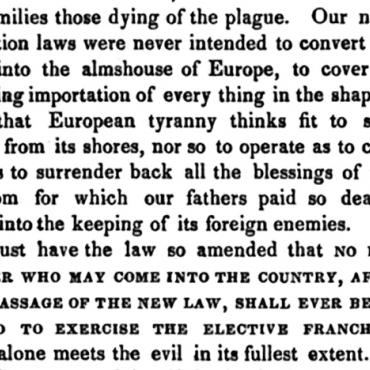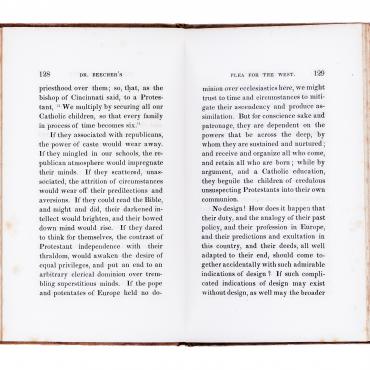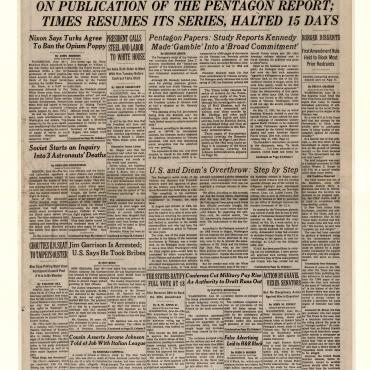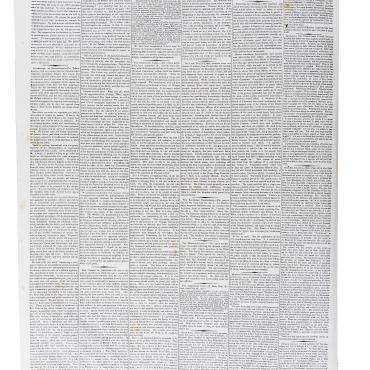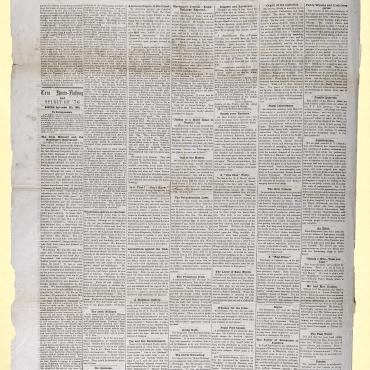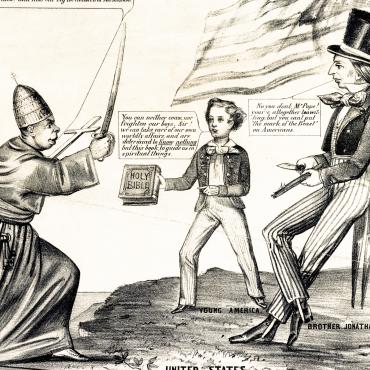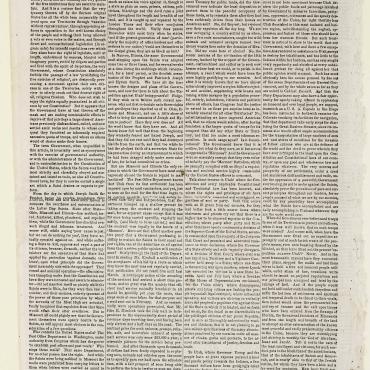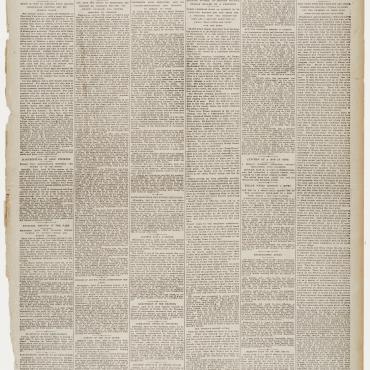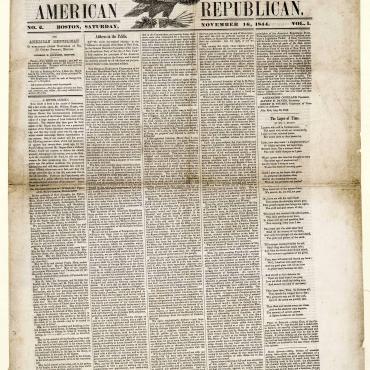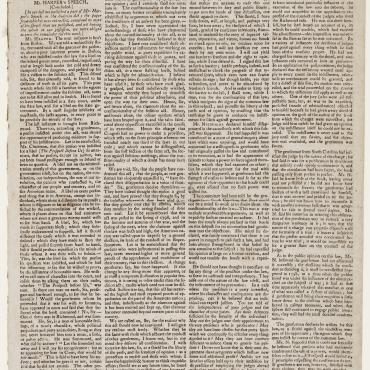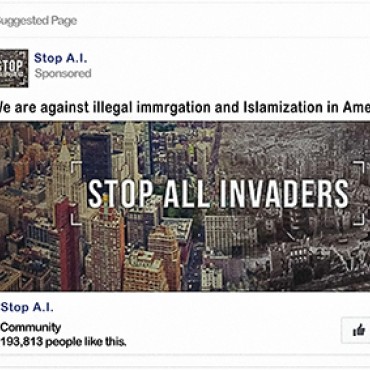1837: Using Religion to Block Catholic Participation
Should Protestant New Yorkers be able to petition to delay citizenship and voting rights for Roman Catholic immigrants because of a perceived threat of foreign powers?
Get even more great free content!
This content contains copyrighted material that requires a free NewseumED account.
Registration is fast, easy, and comes with 100% free access to our vast collection of videos, artifacts, interactive content, and more.
NewseumED is provided as a free educational resource and contains copyrighted material. Registration is required for full access. Signing up is simple and free.
With a free NewseumED account, you can:
- Watch timely and informative videos
- Access expertly crafted lesson plans
- Download an array of classroom resources
- and much more!
This Critical Debate is part of a Debate Comparison:
See all Debate Comparisons- Constitution
- National Security
- Politics
- Religious Liberty
- 9-12
- College/University
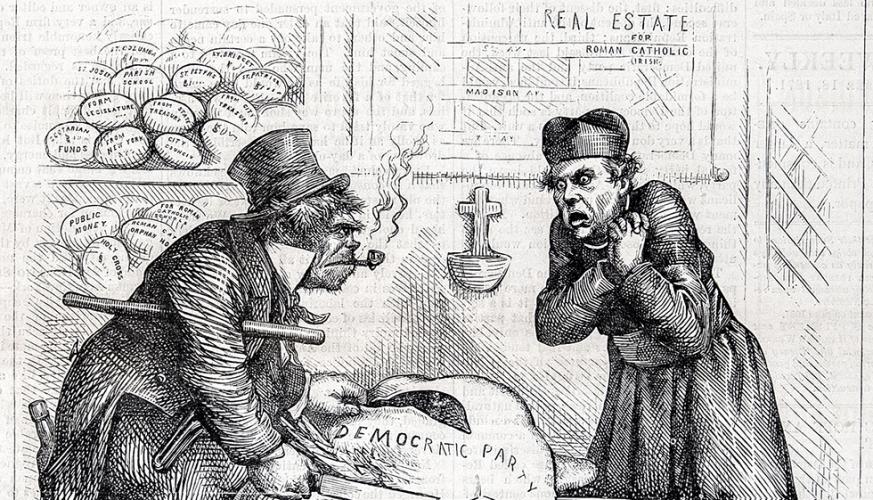
In this cartoon from Harper's Weekly, a priest and an Irish Catholic cut open the Democratic Party seeking more benefits. Thomas Nast often depicted the Irish as apelike.
- Pass out and read the Blocking Catholic Participation case study scenario. Check for comprehension and ask students to identify the First Amendment freedom(s) at issue in this case.
- Break your class into small groups and assign each group one of the people/perspectives. Hand out copies of the Organizing Evidence and Present Your Position worksheets. Give groups 30 minutes to look at the primary sources online and answer the worksheet questions.
- Have each group present their position and arguments. Keep the gallery of case study sources on NewseumED.org open so students can refer to the sources as they explain their reasoning.
- Historical case study handout, one per student (download)
- Organizing Evidence and Present Your Position worksheets, one of each per group (download)
- Case study primary sources (below)
- NewseumED Anti-Catholic Petition Pinterest Board (optional)
To what extent, if any, can the government limit the political rights of religious groups believed to pose a threat to the country?
It's 1837. Catholic immigration to the United States, particularly from Ireland and Germany, is increasing. The new arrivals are facing hostility from many native-born Protestant (non-Catholic Christian) Americans, who distrust the extent to which these immigrants often stick together and the prominent role of priests in Catholic communities. They worry that Catholics are more loyal to the pope and foreign Catholic nations than they are to the United States. A political movement called nativism has begun to form that seeks to protect the interests of native-born, white Protestant Americans. Nativists want to change the laws that allow immigrants to become U.S. citizens to prevent Catholics from organizing into powerful voting blocs that could sway elections.
Catholic-run newspapers publicly defend their beliefs and loyalty to the United States, but the nativists continue their attacks, at times resorting to violence; in 1834, a mob attacks and burns a Catholic convent in Massachusetts. In this charged atmosphere, a group of residents from Washington County, N.Y., sends a petition to Congress asking lawmakers to investigate Catholic immigrants and block them from citizenship.
Take the role of a historical figure below and find evidence to argue your case.
-
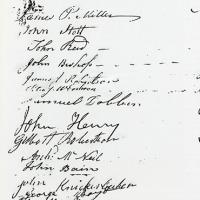 ?Written petitions usually include the signer's address as well as name.Courtesy Charles C. Haynes
?Written petitions usually include the signer's address as well as name.Courtesy Charles C. HaynesResidents of Washington County, N.Y., petitioning Congress to deny Catholics political rights
Catholic immigrants hold views that threaten our democratic principles. Congress should change our naturalization laws to deny them citizenship, in order to protect our country against their dangerous political influence.
"[We] view with deep concern the great influx of Roman Catholics into this country from the various nations of Europe, and their admission to citizenship while they retain their principles, as eminently threatening our civil and religious liberties."
-
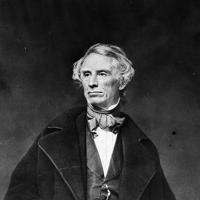 ?This portrait from circa 1850 shows Samuel Morse posing with his famous telegraph. Mathew Brady, best known for his portraits and Civil War images, took the photograph.Library of Congress, Prints & Photographs Division
?This portrait from circa 1850 shows Samuel Morse posing with his famous telegraph. Mathew Brady, best known for his portraits and Civil War images, took the photograph.Library of Congress, Prints & Photographs DivisionSamuel Morse, leading nativist activist
Catholic countries in Europe are conspiring to overturn democracy in the United States by sending Catholic immigrants here to influence our political process; if we don’t stop this plan by barring all future immigrants from voting, these foreign governments will take over.
"Our institutions ... are at the mercy of a body of foreigners, officered by foreigners, and held completely under the control of a foreign power. We may then have reason to say, that we are the dupes of our own hospitality."
-
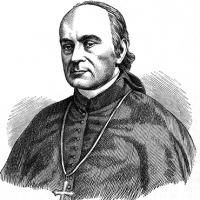 ?This woodcut of Bishop Purcell was originally published in the Old and New World, an illustrated Catholic monthly magazine, in 1870.Courtesy Trier University Library
?This woodcut of Bishop Purcell was originally published in the Old and New World, an illustrated Catholic monthly magazine, in 1870.Courtesy Trier University LibraryCatholic Bishop John B. Purcell of Cincinnati, Ohio
Contrary to claims by nativists, Roman Catholicism is not incompatible with liberty, and Catholics are loyal to the United States. Many Catholics come to the United States to escape religious persecution.
"The head of the Catholic Church in the United States is an American; so is a large number of our clergy. The rest preferred this country, believing there was here, what their own country denies, what our constitution guarantees, liberty of conscience."
- Why did these Catholic immigrants come to the United States?
- Should immigrants have to prove they will be loyal to the United States to enter the country? If so, how could they prove this? If not, why not?
- Should freedom of religion protect religious beliefs that discriminate against other religions, including Protestant anti-Catholic beliefs or Catholic anti-Protestant beliefs?
- Should freedom of speech protect verbal attacks on other religions? What about physical attacks?
- Should freedom to petition the government protect the right to ask the government to discriminate against certain groups?
- How does this case show the ways in which freedom of religion, freedom of speech and freedom to petition can come into conflict with each other?
-
National Center for History in the Schools: NCHS.Historical Thinking.4
A. Formulate historical questions. B. Obtain historical data from a variety of sources. C. Interrogate historical data. D. Identify the gaps in the available records, marshal contextual knowledge and perspectives of the time and place. E. Employ quantitative analysis. F. Support interpretations with historical evidence. -
National Center for History in the Schools: NCHS.US History.Era 3
Standard 1: The causes of the American Revolution, the ideas and interests involved in forging the revolutionary movement, and the reasons for the American victory Standard 2: The impact of the American Revolution on politics, economy, and society Standard 3: The institutions and practices of government created during the Revolution and how they were revised between 1787 and 1815 to create the foundation of the American political system based on the U.S. Constitution and the Bill of Rights
-
Center for Civic Education: CCE.II
A. What is the American idea of constitutional government? B. What are the distinctive characteristics of American society? C. What is American political culture? D. What values and principles are basic to American constitutional democracy?
